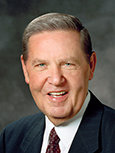Lesson 33:
2 Nephi 17-20
In the days of King Hezekiah—the son of Ahaz—Isaiah compared the Assyrian army to a river that would symbolically flood the land of Judah and “reach even to the neck”—meaning the walls of Jerusalem. This prophecy was fulfilled when 185,000 Assyrian soldiers came to attack Jerusalem, stopping at the walls of the city.
Summary of 2 Nephi 18:1-10
If we put our trust in the Lord during times of difficulty, He will help, protect, and be with us.
What does this mean to you?
Jesus Christ is the Mighty God, the Everlasting Father, the Prince of Peace.
Elder Holland also explained the significance of the various titles applied to the Lord Jesus Christ in these verses:
“As ‘Wonderful Counselor,’ he will be our mediator, our intercessor, defending our cause in the courts of heaven. …

“Of course, as noted by Isaiah, Christ is not only a mediator but also a judge [see Mosiah 3:10; Moroni 10:34; Moses 6:57]. It is in that role of judge that we may find even greater meaning in Abinadi’s repeated expression that ‘God himself’ will come down to redeem his people [Mosiah 13:28; see also Mosiah 13:34; 15:1; Alma 42:15]. It is as if the judge in that great courtroom in heaven, unwilling to ask anyone but himself to bear the burdens of the guilty people standing in the dock, takes off his judicial robes and comes down to earth to bear their stripes personally. Christ as merciful judge is as beautiful and wonderful a concept as that of Christ as counselor, mediator, and advocate.
“‘Mighty God’ conveys something of the power of God, his strength, omnipotence, and unconquerable influence. Isaiah sees him as always able to overcome the effects of sin and transgression in his people and to triumph forever over the would-be oppressors of the children of Israel.
“‘Everlasting Father’ underscores the fundamental doctrine that Christ is a Father—Creator of worlds without number, the Father of restored physical life through the Resurrection, the Father of eternal life for his spiritually begotten sons and daughters, and the One acting for the Father (Elohim) through divine investiture of authority. All should seek to be born of him and become his sons and his daughters [see Mosiah 5:7].
“Lastly, with the phrase ‘Prince of Peace,’ we rejoice that when the King shall come, there will be no more war in the human heart or among the nations of the world. This is a peaceful king, the king of Salem, the city that would later become Jeru-Salem. Christ will bring peace to those who accept him in mortality in whatever era they live, and he will bring peace to all those in his millennial and postmillennial realms of glory” (Jeffrey R. Holland, Christ and the New Covenant, 80–82).
Lesson 33: 2 Nephi
By fonz23
Lesson 33: 2 Nephi
- 1,151



